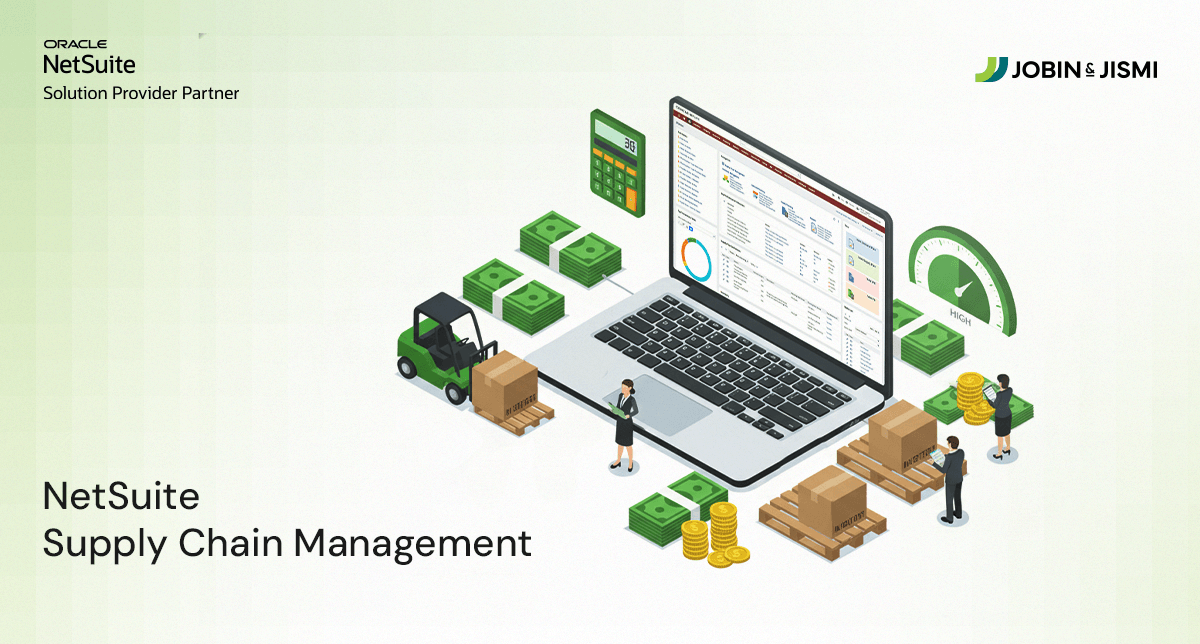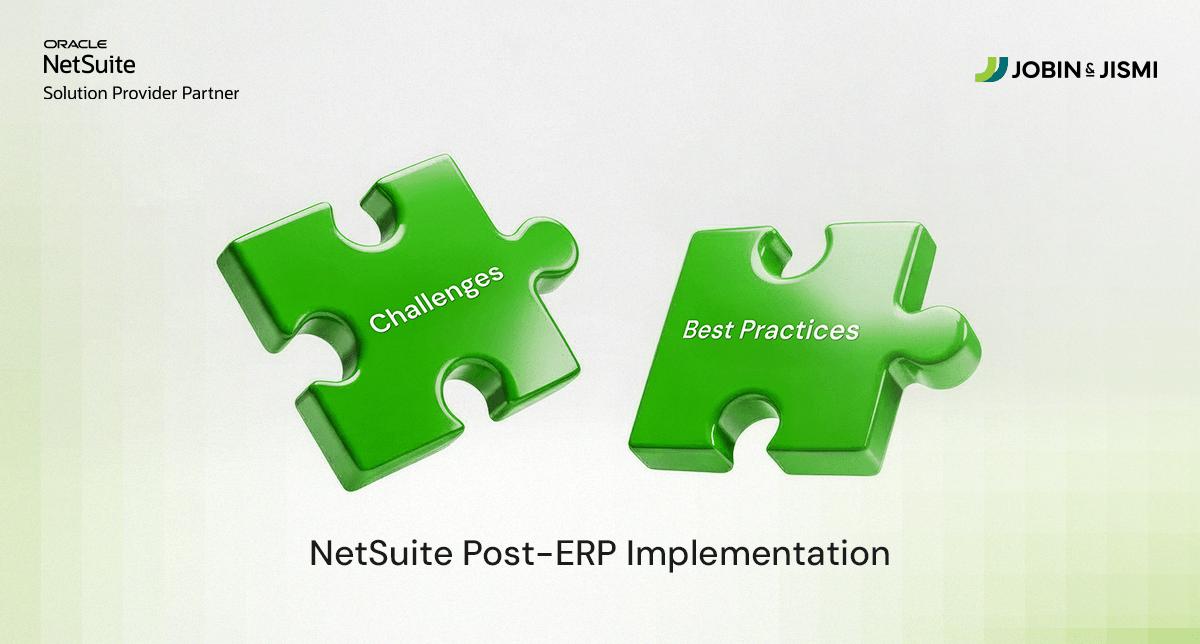NetSuite Vs Microsoft Dynamics 365: What You Need to Know?

Necessity drives innovation, leading to the creation of outstanding solutions. In today’s rapidly changing business environment, companies are eager to adopt cutting-edge tools to meet their evolving needs. Two of the most prominent names in this space are NetSuite ERP and Microsoft Dynamics 365.
Both platforms offer robust features, scalability, and flexibility and are cloud- and subscription-based solutions. Both NetSuite and Microsoft Dynamics 365 offer powerful capabilities that can transform the way organizations operate. The features owned by these systems create a dilemma in choice for business enterprises. However, the decision between the two depends largely on your specific business requirements and objectives.
Let’s dive into a detailed comparison between NetSuite and Microsoft Dynamics 365, helping you understand their key differences, strengths, and which might be the better fit for your organization.
NetSuite ERP
NetSuite is the #1 cloud-based Enterprise Resource Planning (ERP) software, designed to cater to businesses of all sizes—from small startups to large enterprises. Developed by Oracle, NetSuite offers a comprehensive suite of business intelligence applications. It combines both Customer Relationship Management (CRM) and ERP capabilities, eCommerce, and Professional Services Automation (PSA) into a single platform.
NetSuite ERP automates key business processes, driving efficiency and growth. It includes components for Sales, Marketing, Customer Service, Field Service, Human Resources, Business Central, and more, providing businesses with a centralized system to manage their operations.
Key Features:
• Fully cloud-based solution
• Real-time visibility across business operations
• Extensive customization and scalability
• Customizable dashboards
• Strong financial management and accounting tools
Microsoft Dynamics 365
On the other hand, Microsoft Dynamics 365 is a powerful ERP solution that unifies various business processes and activities into one cohesive package. It seamlessly integrates CRM tools with ERP capabilities, offering businesses a flexible platform to manage their operations.
Dynamics 365 is highly modular, allowing organizations to pick and choose the applications that best fit their needs. This platform is suitable for businesses of all sizes, from small enterprises to large corporations.
Key Features:
• Hybrid deployment options (cloud, on-premises, or hybrid)
• Seamless integration with other Microsoft products (e.g., Office 365, Azure)
• AI-driven insights and advanced analytics
• Extensive customization and flexible licensing options
Comparison: NetSuite V/s Microsoft Dynamics 365
The following are the major features, capabilities, and functionalities shared by NetSuite ERP and Microsoft Dynamics 365.
NetSuite ERP
• Suite Analytics tools to provide robust analytics for business management.
• Audit Trail Visibility that ensures transparency and accountability.
• Tax Management.
• Flexible Depreciation Management.
• Workflow Management.
• Fixed Asset Roll Forward.
• Integrated Financial Reporting.
• Procure-to-Pay.
• Real-time visibility.
• Order-to-Cash.
• 360-degree customer view.
Microsoft Dynamics 365
• Unified Client Interface.
• Web Client Refresh.
• Multi-Select Option Sets.
• Activity Timeline.
• LinkedIn Sales Navigator.
• Automation.
• Sales Forecasting.
• Contact management.
• Sales dashboards.
1. Flexibility
Both NetSuite and Microsoft Dynamics 365 are highly flexible and customizable to meet specific business needs. They can be integrated with third-party systems to enhance functionality.
However, NetSuite offers greater flexibility in accessing and managing data, which can simplify integration with external systems. Microsoft Dynamics 365, while flexible, faces some limitations in direct data access, which can complicate third-party integrations.
2. Scalability
NetSuite is known for its scalability, offering features that prevent over-personalization inside a company while allowing for growth. It’s designed to support businesses as they expand, making it suitable for both small and large enterprises.
Microsoft Dynamics 365, though scalable, offers a more limited range of functionalities and may require more customization to meet the needs of large or complex organizations. The system’s scalability is more dependent on the specific requirements of the business.
3. Pricing
NetSuite ERP offers competitive pricing with a subscription model starting at $999 per month, plus $99 per month for each user. This model is flexible, with the option to renew annually or over longer intervals.
Microsoft Dynamics 365 is generally more expensive. For an on-premise solution, costs range from $3,000 to $5,000 per user, multiplied by the number of users, third-party products, and annual maintenance. For a cloud-hosted solution, pricing ranges from $230 to $530 per user, per month.
Updates and Enhancements
NetSuite ERP offers two updates per year, ensuring the system remains reliable and up to date with changing business needs and technologies.
Microsoft Dynamics 365 implemented twice-yearly updates in 2023.
Why Does Microsoft Dynamics Still Struggle?
Microsoft Dynamics 365 faces several challenges, including:
• High capital and operational costs.
• Lack of direct database access.
• Downtime issues.
• Limited user licenses.
How Does NetSuite ERP Stand Out in the Crowd?
Despite strong competition from Microsoft Dynamics 365, NetSuite ERP remains a top choice due to its exceptional capabilities and flexibility. It is highly customizable, making it adaptable to the unique needs of each business.
NetSuite’s extensive functionality and cost-effectiveness make it a valuable tool for informed decision-making and business growth.
While Microsoft Dynamics 365 is well-suited for small to mid-sized organizations, NetSuite is widely regarded as a superior ERP solution for both small and large enterprises. It’s almost a tie to choose the best.
Wrapping Up
If you’re interested in learning more about the extensive features and benefits of NetSuite ERP and how it can be tailored to your business needs, our experts are here to help. At Jobin & Jismi, we are committed to assisting you in harnessing the full potential of NetSuite ERP for your organization. Feel free to contact us for personalized guidance and support.
on LinkedIn




